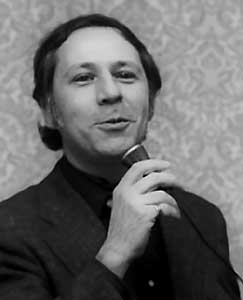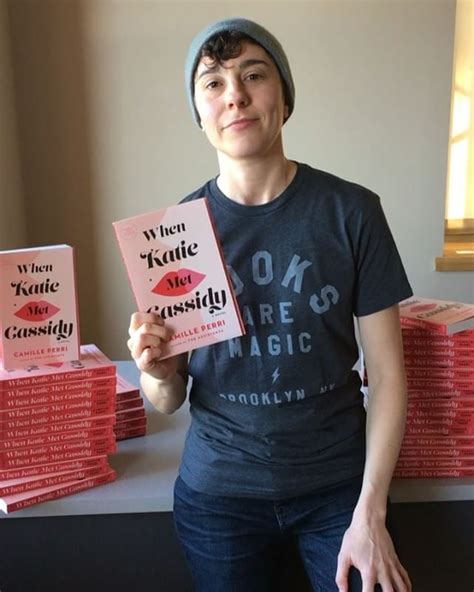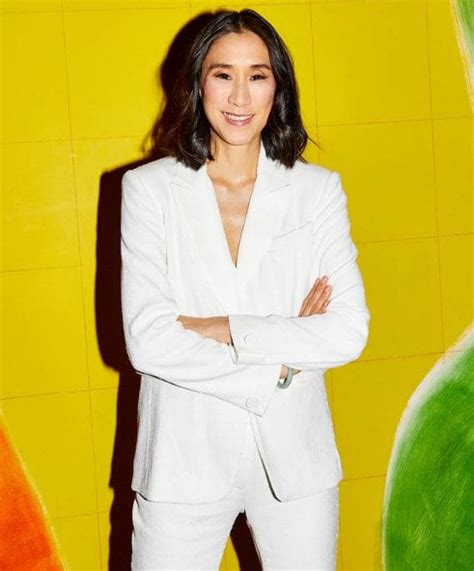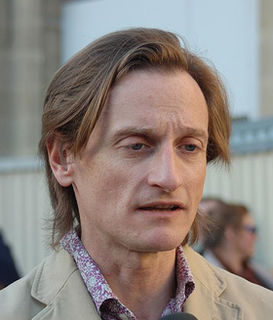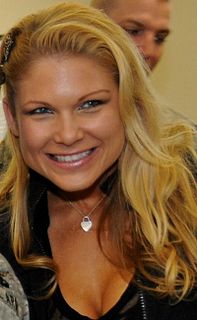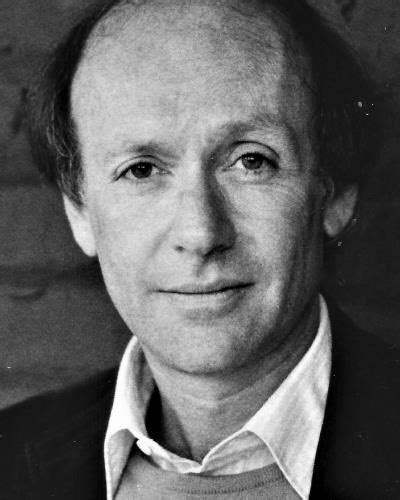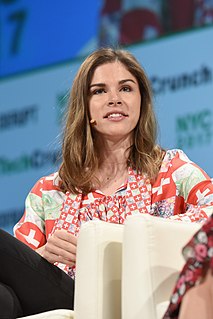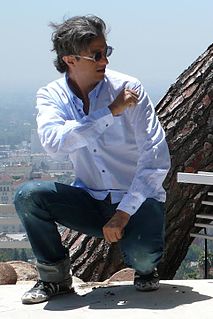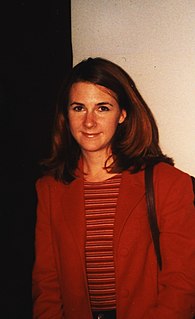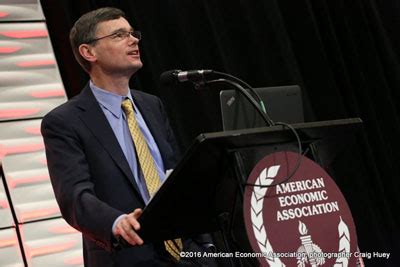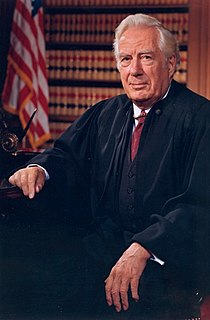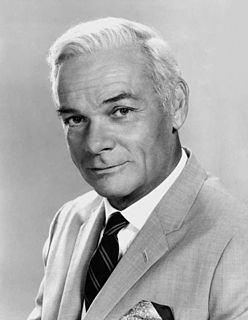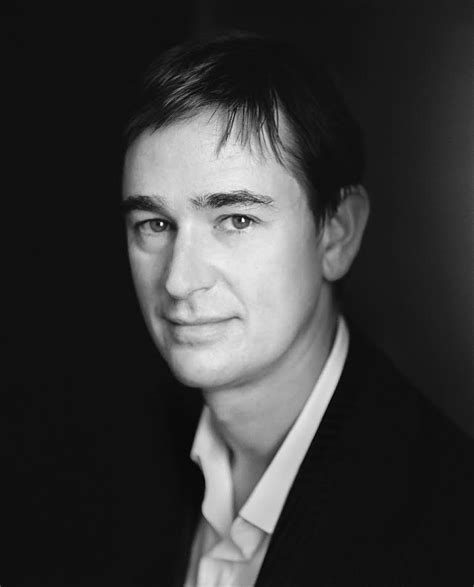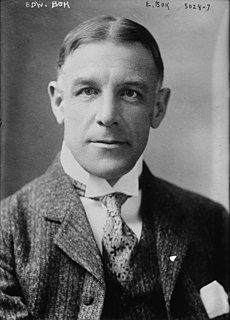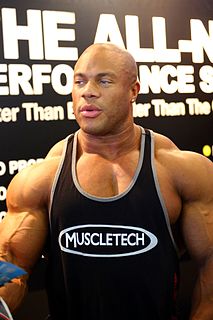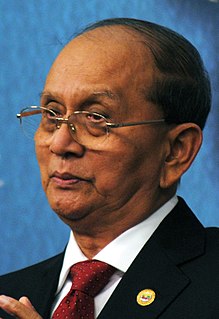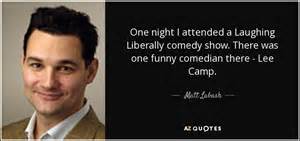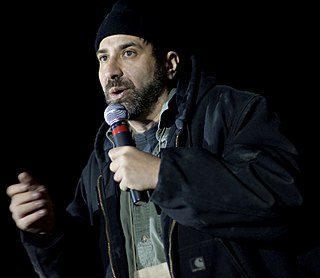Top 1200 Magazine Editors Quotes & Sayings
Explore popular Magazine Editors quotes.
Last updated on April 14, 2025.
People do judge books by their covers, and the magazine editors deciding whether to include your book on their pages are working in a visual medium. So if you're less than thrilled by the cover your publisher proposes, don't be afraid to ask for an alternate version. Odds are that they want you to be happy with the final product, anyway.
I was co-editor of the magazine called The Jazz Review, which was a pioneering magazine because it was the only magazine, then or now, in which all the articles were written by musicians, by jazz men. They had been laboring for years under the stereotype that they weren't very articulate except when they picked up their horn.
I was interested in creating things that I could be proud of and so, you know, I was interested in being an editor of a magazine, things that I could be proud of, and so, you know, I was interested in being an editor of a magazine, but in order to be an editor of a magazine I had to become a publisher as well. I had to pay the bills. I had to worry about the printing and the paper manufacturing and the distribution of that magazine.
I would proclaim that the vast majority of what [say, Scientific American] is true-yet my ability to defend such a claim is weaker than I would like. And most likely the readers, authors, and editors of that magazine would be equally hard pressed to come up with cogent, non-technical arguments convincing a skeptic of this point, especially if pitted against a clever lawyer arguing the contrary. How come Truth is such a slippery beast?
I set up this magazine called Student when I was 16, and I didn't do it to make money - I did it because I wanted to edit a magazine. There wasn't a national magazine run by students, for students. I didn't like the way I was being taught at school. I didn't like what was going on in the world, and I wanted to put it right.
It's no surprise that the droll and (seemingly) all-knowing wizard behind the Chicago Style Q&A puts it all together-entertainingly-for manuscript editors in this real-world guide to job success and survival. The surprise is how urgent it is for every author, client, and boss who works with editors to embrace Carol Fisher Saller's 'subversiveness'-or suffer the next outcome from hell.
In September 2005, I was three things: the media blogger for 'FishbowlNY,' a maniacal Daily Show fan, and the only person to smuggle a tape recorder and camera into a big Magazine Publishers of America event featuring Jon Stewart interviewing five hotshot magazine editors in an unbelievable bloodbath.
I'm sketching ideas. They're a completely different way of working than working with editors at a magazine where you're always working with permission; approval. I'm willing to make a gentle separation. I still need to do that work since I enjoy it. It gives me access to a lot of energy in life and culture. But also, there's a part of me that is dark, sarcastic, funny. Unpredictable, even naughty.
I remember once when I was working on a magazine, and one of the male editors was going on a field trip with one of his sons. The office was full of, 'He's such a good dad,' whereas I came in late from a doctor's appointment for one of my children and was asked, 'Where were you? You'll need to make up the time.'
As one of the first editors at 'Outside' magazine in 1975, it was my contention that most American writing going back to James Fennimore Cooper and then through Twain up to Hemingway had been outdoor writing. At that time, adventure writing meant stuff like 'Saga' or 'Argosy.' 'Death Race with the Jungle Leper Army!' That kind of thing.
That is the person you want publishing your book. To be in it, you really have to believe in books and love whatever it is you're publishing. Both on the book side and especially on the magazine side, I've had editors that I did not get the same feeling from. That feeling of, "This is something I believe in, I don't care how long, I'm going to publish it" - that kind of passion and commitment means a lot to you.
My very first venture was a national student magazine to try to campaign against the [Vietnam] War. And so I wanted to be an editor. I wanted to bring the magazine out. And in order for the magazine to survive I had to worry about the printing and the paper manufacturing and the distribution. And, you know, I had to try to, at the end of the year, have more money coming in than going out.
That's absolutely true, but one problem with the digital revolution, which may tie into what I said earlier, is that there can be a collapse of quality. You may not have liked the decisions made by publishers in the past, you may not have liked the decisions made by magazine editors or newspaper editors in the past. At least there was some quality control
When I was doing my research for 'Branded,' I'd meet groups of teenagers and preteenagers or tweens, and they would laugh at a magazine spread in a women's magazine or teen girl magazine and say, 'I'd never buy this outfit. I know these girls are starving themselves.' But they probably would go out and buy the thing eventually.
I think I've yet to do the big heave is because New York editors tend to think D.C. guys like me want to do political stories. And I hate politics for its own sake. Politics are so... I don't know, political. Which is an odd thing for a guy to say, I suppose, who has worked at a political magazine for fourteen years.
Who are these bloggers? They're not trained editors at Vogue magazine. There are bloggers writing recipes that aren't tested that aren't necessarily very good, or are copies of what really good editors have created and done. Bloggers create a kind of a popularity but they are not the experts. We have to understand that.
I wrote a letter to the magazine [Time magazine] pointing out that [Richard] Corliss's comparison of Christopher Lee's Saruman to Osama Bin Laden, and the vastly outnumbered defenders of Helm's Deep united against the Orcs to the "Coalition of the Willing" fighting the good fight against Muslim hordes, displayed the simplistic, xenophobic, and arrogant worldview that makes the government of the United States feared and mistrusted around the world. The editors claimed they had no space to print my brief letter, which I felt was dishonest and cowardly.
